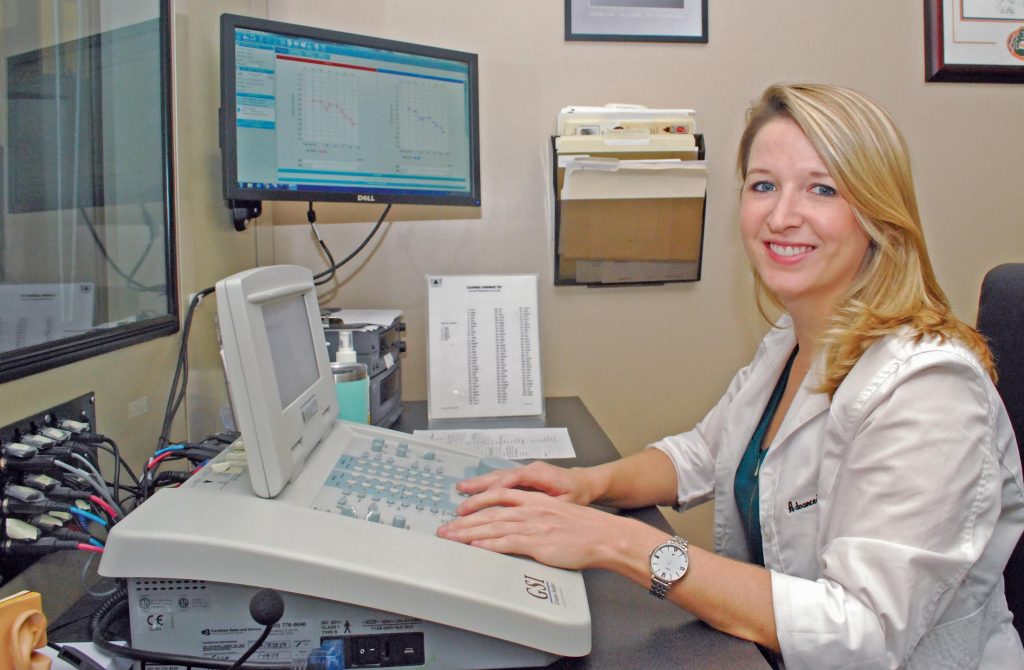
Juliette Gassert has always wanted to contribute in a meaningful way to society, to find a profession where she could help others make the most of their lives. Though she originally considered going into the business marketing field at the University of Maryland, she quickly decided that it wasn’t for her.
It didn’t take long for her to find her place in the world. Since April, Dr. Gassert has been working with Dr. Mary Anne Larkin at Advanced Hearing Care in Mount Pleasant, helping area residents hear the sounds that surround them, from tweeting birds and honking horns to television shows and conversations in crowded restaurants.
“It’s very rewarding,” said Dr. Gassert, pointing out that audiology combines science, medicine, technology, rehabilitation and counseling. “I can’t see myself in any other field. I wanted to do something where I felt good about myself. I wanted to make peoples’ lives better.”
Dr. Gassert, who earned both her bachelor’s and her doctorate in Audiology at the University of Maryland, started her professional career on the West Coast.
“I moved to San Francisco, even though I didn’t know anyone there. I was looking for a different type of personal challenge,” she explained.
After three years in the Pacific time zone, Dr. Gassert decided it was time for another change in her life. She had visited the Charleston area, and she learned of the opportunity at Advanced Hearing Care the day she returned to the West Coast. It didn’t hurt that her best friend was already living in the Lowcountry.
“I fell in love with the Charleston area,” she said. “I wanted a smaller-town feel, and I wanted to give the South a try. Charleston is such an up-and-coming city.”
Dr. Gassert, a competitive volleyball player, is a fellow of the American Academy of Audiology, is board certified by the American Board of Audiology and has a certificate of clinical competence in Audiology from the American Speech-Language-Hearing Association.
She pointed out that protection for your ears is necessary whenever loud noise might affect your hearing. That includes when you are mowing the lawn, using power tools or listening to live music, all common pastimes in the Charleston area.
Dr. Gassert added that hearing health is connected to the well-being of the rest of your body.
“Anything that’s good for the heart is good for hearing: staying active, exercising and eating well,” she said.
She went on to say that hearing loss has been linked to other issues, such as cardiovascular disease, pointing out that it is the third most common chronic condition, behind heart disease and arthritis. She said research has connected hearing health to brain health as well.
“There’s a strong link here,” she explained. “Untreated hearing loss is linked to increased cognitive decline – poor memory and slower processing.”
Does treating hearing loss effectively reverse these issues?
“It’s something we’ve suspected, but we’re now gathering long-term research to support our theories. Studies are starting to show that treating hearing loss reduces the cognitive decline associated with hearing loss,” she said. “This increase in research highlighting the connection between the ears and the brain is critical. It’s encouraging people to think more seriously about their hearing health care. In the past, people haven’t made that connection.”
To learn more about hearing health, visit www.advhearing.com.